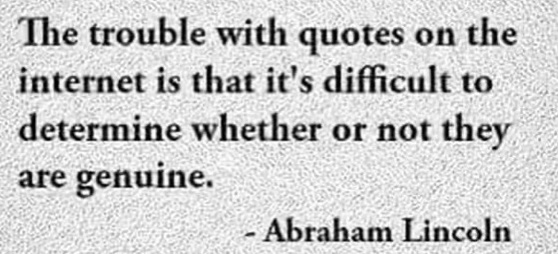
Experience is something you don’t get until just after you need it.
Loving Enemies
Our enemies always carry our own shadow side, the things we don’t like about ourselves. We will never face our own shadow until we embrace those who threaten us (as Francis of Assisi embraced the leper in his conversion experience). The people who turn us off usually do so because they carry our own faults in some form.?
Richard Rohr
Chiasms are a kind of mirror-image parallelism, using repetition to trace an idea. They litter the Old Testament and the New; once you start seeing them, you can’t stop.
A modern example of a short chiasm would be If you fail to plan, you plan to fail. Jesus makes a pithy chiastic statement in Mark 2:27: “The Sabbath was made for man, not man for the Sabbath.”
If we focus just on our abilities and responsibilities, we see only gains in the first half of the chiasm of life and only parallel losses in the second. In a culture that values youth and vigor, we risk losing sight of what we learn over the years: wisdom. The wisdom of aging means that even as our bodies increasingly fail us, our internal lives grow richer and steadier. Bodies decline, but people develop.
Parenting
Christopher Lasch: “The school, the helping professions, and the peer group have taken over most of the family’s functions, and many parents have cooperated with this invasion of the family in the hope of presenting themselves to their children strictly as older friends and companions.”
Parents have bought into the illusion that if they do not direct and guide their children, then their children will make free individual choices — and then, if things go wrong, at least they won’t be able to blame Mom and Dad.
Awe- inspiring
Something must have come over me, says Kohei Ohmori, reflecting on the 280 hours or roughly 5 months spent drawing a hyper realistic composition of a metallic bolt and nut using just pencils.

Salt
Salt doesn’t exist to preserve itself; it exists to preserve what is not itself…. Salt is meant to enhance, not dominate. Christian saltiness heals; it doesn’t wound. It purifies; it doesn’t desiccate. It softens; it doesn’t destroy….
One of the great tragedies of historic Christianity has been its failure to understand this distinction. Salt fails when it dominates. Instead of eliciting goodness, it destroys the rich potential all around it. Salt poured out without discretion leaves a burnt, bitter sensation in its wake. It ruins what it tries to enhance. It repels.
Debbie Thomas
Reading
According to the neuroscientist Maryanne Wolf, so-called deep reading—sustained immersion in a text—stimulates a number of valuable mental habits, including critical thinking and self-reflection, in ways that skimming or reading in short bursts does not.
Tucker Carlson
“If running for office can encourage you to imagine millions of supporters [who don’t exist], hosting a show can entirely separate you from reality,” he observed. “If you’re not careful, you can permanently lose all critical distance from yourself. One morning you wake up, and you’re living in your own irony-free world.”
The Danger
“The danger,” the Jewish mystic Simone Weil wrote, “is not lest the soul should doubt whether there is any bread, but lest, by a lie, it should persuade itself that it is not hungry.”
NICU UPDATE

Archie Scott Gabehart

Now 2 lbs.–
STILL ON THE JOURNEY